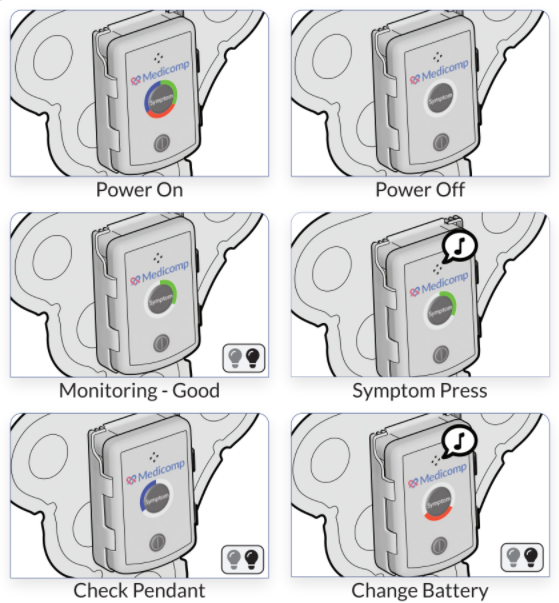ReactDx, the Holter monitoring experts, is sharing the recent results of a study on preventing dementia in patients. The key may lie in the proper management of risk factors that lead to heart disease. Rebecca Gottesman, MD, PhD, of Johns Hopkins University in Baltimore, reported at the International Stroke Conference that her team’s 25-year Atherosclerosis Risk in Communities Neurocognitive Study (ARIC-NCS) found that patients who smoked, were hypertensive, or were diabetic – all risk factors for cardiovascular disease – were up to 40% more likely to develop dementia later in life.
Of all factors, diabetes carried with it the greatest risk; of the 10,000 patients in the study, the rate of dementia was almost double that of patients who were not diabetic. Gottesman concluded, “In fact, the risk associated with diabetes nears the increased risk associated with having an APOE4 [fusion_builder_container hundred_percent=”yes” overflow=”visible”][fusion_builder_row][fusion_builder_column type=”1_1″ background_position=”left top” background_color=”” border_size=”” border_color=”” border_style=”solid” spacing=”yes” background_image=”” background_repeat=”no-repeat” padding=”” margin_top=”0px” margin_bottom=”0px” class=”” id=”” animation_type=”” animation_speed=”0.3″ animation_direction=”left” hide_on_mobile=”no” center_content=”no” min_height=”none”][apolipoprotein E epsilon 4] allele.”
The ARIC-NCS was a subanalysis of the ARIC study sponsored by the National Heart, Lung, and Blood Institute that focused on racial differences in risk. Their results further proved that black individuals are more susceptible to the risk of diabetes, while white patients are more likely to suffer from hypertension.
Of the 10,000 original participants who began the study in 1987-1989, 6,471 were available for the fifth visit during the years 2011-2013. Assessments of these individuals included cognitive, neurologic, and brain imaging to determine any cognitive impairment or dementia. Close to 30% of this cohort was diagnosed with mild cognitive impairment or dementia.
Smoking, prehypertension, and hypertension in middle age all increased the risk of dementia by 40% later in life, while diabetes caused the risk to skyrocket to 80%. An increase in body mass index or dyslipidemia did not increase dementia, however.
Comparing risk factors between races, it was determined that Caucasians who were obese had a 22% higher risk of dementia, and current smoking increased the risk by 62% for Caucasians; both these risk factors were not tied to any signs of dementia for African-Americans. Diabetes, on the other hand, increased dementia risks by 85% in black individuals compared to 69% in Caucasians.
Dr. Gottesman recognized a lack of a clear explanation for many of the disparities, but surmised that “…even if a risk factor has the same relationship with dementia in both groups, if it is more prevalent in one group, that may somewhat account for this larger population attributable risk.”
For more information pertaining to cardiovascular health, read our News & Updates page, and contact ReactDx at 800-234-3278 (23-HEART) to learn how our line of Holter monitoring products can aid in patient recovery.[/fusion_builder_column][/fusion_builder_row][/fusion_builder_container]



